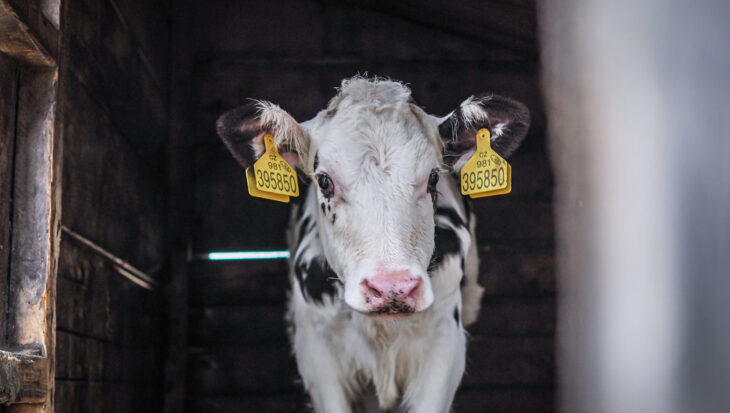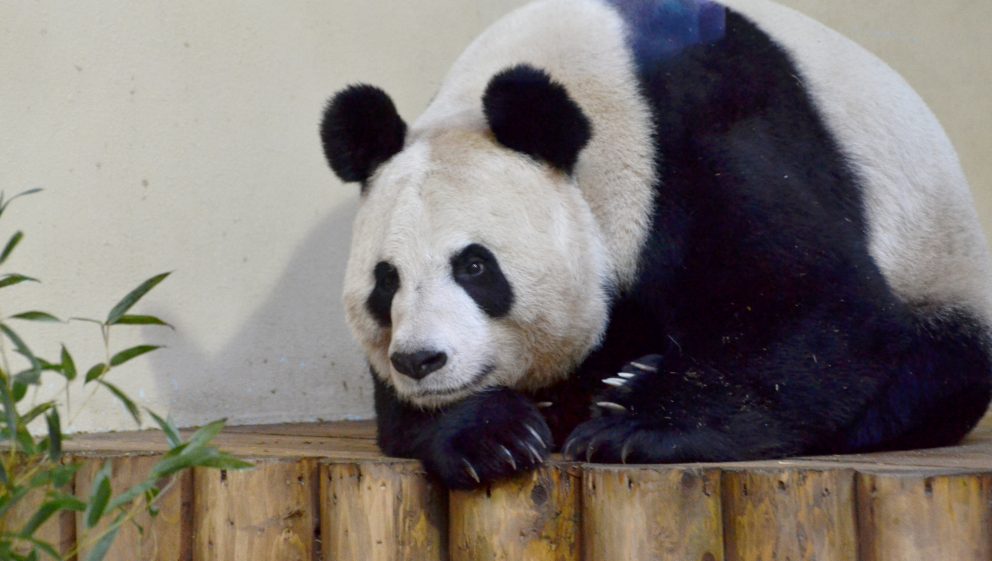Female pandas are biologically receptive for just 36 hours a year and, as that ‘window’ approached, everything was laid on to create the perfect mood for an intimate coupling. There were the crowds of gawping, shrieking visitors, the practically on-the-hour bulletins to a compliant media (Let’s get it on: giant pandas have a hot date in the ‘love tunnel’, The Independent) and, guaranteed to set the pulse racing, regular urine and blood sampling of hapless Tian Tian.
In the end, just like this time last year, there was no coupling – and so ‘science’, in the guise of a German artificial insemination expert, stepped forward. (In fact, AI was always on the cards as ‘insurance’.) According to a senior scientist at a giant panda breeding centre in China, AI is conducted as follows: Sperm is drawn from the males by inserting an electrified rubber truncheon into their anus. A ‘straw’ of this sperm is then inserted into the drugged female, who is strapped to a wooden board. Not exactly hearts and roses.
Giant pandas don’t need human help to procreate. Tian Tian and Yang Guang don’t want to bring a baby panda into the world, probably because their world is a wretched prison, in which they are isolated from everything natural to them. They are stared at daily by media-conditioned hordes, and controlled by people intent on exploiting them as commercial assets. Plus, they were thrown together as ‘mates’ without any choice in the matter.
They remain the possession of the Chinese authorities, who have rented them out on a 10 year contract that costs Edinburgh zoo £650,000 a year, plus extra for any cub produced (those cubs also remain the property of China).
All those involved claim that preserving giant pandas from extinction is the core goal. Pandas’ bamboo-rich natural habitat is fast being swallowed up by massive transport, energy, tourism and other infrastructure projects. The number of wild pandas is down to just 1600, or lower. The ‘answer’ has been to open 41 panda breeding factories across China. Breeding began in 1963 and while these centres now hold a total of 300 pandas – and the largest draws 800,000 visitors a year – not one panda has been successfully released into the wild. Nor will they ever be, according to a number of experts. The factory-bred animals are too institutionalised and guileless. The one attempted release, in 2007, was of a male called Xiang Xiang. He is thought to have been chased up a tree by wild pandas and, from there, fell to his death.
Meanwhile, at the panda breeding factories the females endure an endless cycle of AI-induced pregnancies, with their young snatched from them at birth. Though none of these progeny are ever likely to be released, 40 or more are currently on loan, under very lucrative rental schemes, to zoos around the world.
Panda habitat continues to shrink to the point where the few survivors are driven into tiny, fragmented pockets of land, surrounded by relentless industrial development and invaded by crass, noisy tourists. Some of the survivors have actually been captured and put to work in the breeding factories.
As for the greedy cynics who did the Edinburgh loan deal with the Chinese, will they be able to orchestrate as many column inches to coincide with next year’s ‘biological window’, and thereby help pay off their annual rental? Let’s hope the media realises there’s a better story to tell.


